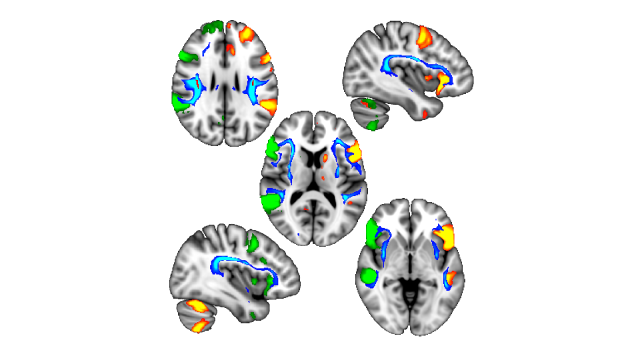A series of genetic variants can influence handedness, according to a new paper.
No, researchers have not discovered a “handedness gene.” But through brain imaging of 9,000 people in the United Kingdom, researchers devised a list of genetic variations that contribute to the way different brain processes end up on either side of the brain. This, in turn influences handedness — and can also influence whether someone will develop certain neurological diseases, according to the paper published in the journal Brain.
“The skew in distribution of handedness is a uniquely human characteristic. We know from pre-historic art that around 90 per cent of humans have been right handed for at least 10,000 years,” the study’s corresponding author, Dominic Furniss, told Gizmodo in an email.
“Most other animals have a much more even distribution of left- and right-handed individuals. Therefore, beginning to understand what is responsible for this distribution in humans helps us start along the road to understanding the question ‘what makes us human?’”
Despite its ubiquity to the human experience, there are lots of unresolved questions related to handedness, such as how lefty and righty brains differ and the influence of genetics.
Furniss, an associate professor at the University of Oxford in the United Kingdom, and his collaborators relied on data from the UK Biobank, a study of 500,000 people who offered their physical and genetic data, as well as medical records, up for study. The researchers looked specifically at data, including brain images, from 721 lefties and 6,685 righties included in the set.
The analysis revealed four locations in our genomes whose identity was associated with left-handedness, three of which were also associated with brain development, specifically areas related to language.
“We discovered that, in left-handed participants, the language areas of the left and right sides of the brain communicate with each other in a more coordinated way,” Akira Wiberg, a research fellow at the University of Oxford and the study’s first author, said in a press release.
But the research also revealed links between these regions and various neurological and psychiatric health-related issues, including an increased likelihood of having schizophrenia and anorexia nervosa, and a decreased likelihood of having Parkinson’s disease, according to the paper. The effects of these genes on the diseases are still “relatively modest,” the authors write.
It’s important to note that this study set out to find correlations in data on a specific population. It’s not a conclusive link between genes and handedness, nor is it a link between handedness and neurological conditions.
The authors state that a replication study with another large group of people would be needed to confirm their results. “We haven’t discovered ‘the gene for handedness,’” Furniss said. Instead, the study finds that “the likelihood of becoming left handed is influenced by many genetic variants and other non-genetic factors, all of which influence the structure and function of our brain.”
Still, it’s exciting work, and the first such study of its kind. And as a lefty myself, it’s nice to better understand how my weird brain works.
